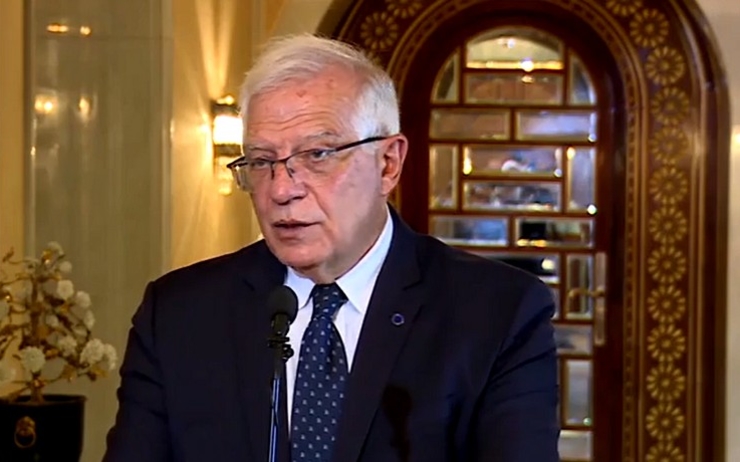The High Representative for Foreign Affairs and Security Policy / Vice-President of the European Commission, Josep Borrell, made his first official visit to Tunisia on September 9 and 10, 2021.
He met independent bodies (established by the 2014 Constitution) as well as representatives of Tunisian civil society and political actors.
It then met with the Chief of Staff of the President of the Republic, Ms. Nadia Akacha, as well as with the manager of the Ministry of the Economy, Finance and Investment Support, Ms. Sihem Boughdiri.
On September 10, Mr. Borrell was received by the President of the Republic, Kaïs Saïed, who clarified “The visit reflects the shared desire to devote the values of dialogue and consultation on issues of common interest. Tunisia is firmly determined to consolidate its strategic partnership with the European area, its attachment to democratic values and human rights. man shared with the European Union. “
Democratic process
Kais Saied who reconsidered the decisions announced on July 25, 2021, namely the lifting of the immunity of deputies, the suspension of the activities of the parliament and the dismissal of the head of government, clarified that the situation required exceptional measures in the framework of the Constitution to rectify the process and save the country, and assured that there is no threat to freedoms, nor of withdrawal in terms of the gains made in the country before adding that these measures will be followed by others decisions intended to consolidate the democratic process in Tunisia.
Joseph Borell declared, at the end of the interview, to have recalled the attachment of the European Union to the democratic anchoring of Tunisia as well as to respect for the sovereignty of Tunisia.
”I transmitted to President Kaïs Saïed the European apprehensions, apprehensions regarding the preservation of the democratic acquis in Tunisia, which alone is able to guarantee the stability and prosperity of the country. The free exercise of legislative power and the resumption of parliamentary activity are part of this achievement and must be respected. In this context, it is important to lead the country towards the restoration of institutional stability while preserving these democratic foundations. And this, by remaining attentive to the wishes and aspirations of the Tunisian people, within the framework of an open and transparent dialogue, which will allow Tunisia to set off again on the path of democratic consolidation.ue. It will ultimately be on the actions and concrete measures that will be taken in the coming weeks that we will determine how we can better support and accompany Tunisia’s democracy, stability and prosperity. “
Joseph Borell’s full statement HERE
–


